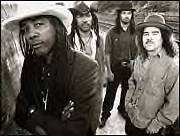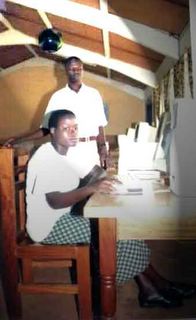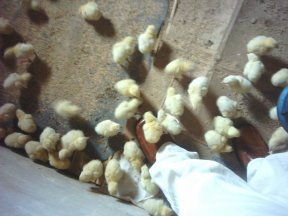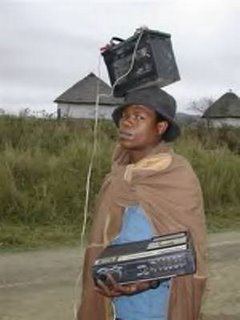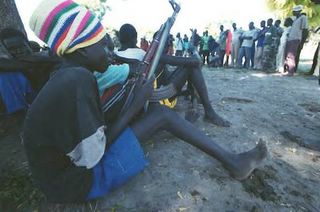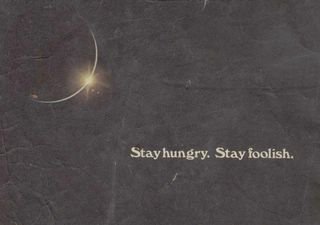
Dr. Kizza Besigye
 Ugandan Opposition Leader Jailed
Ugandan Opposition Leader JailedDr. Kizza Besigye pictured here with his wife Winne Byanyima is a political leader and president of the
Forum for Democratic Change in Uganda. Without going into details he was
arrested this week on charges of treason and rape. His arrest sparked
rioting in Kampala.
Many of you know that I have friends in Uganda, so this news is important to me. But for so many reasons I'm relucant to blog about stories like this. For one reason my interest is for more people outside Africa to consider what they can do, and it seems that there is wisdom in in Robert Rodale's approach to focus on local empowerment: to
Save Three Lives. I also find solution-oriented information a whole lot more interesting. I tend to like people, so stories of ordinary people doing good, or at least the best they can, fits my positive imagination of African people. I'm also hardly informed enough to really follow politics abroad.
Still, this news of Besigye's arrest is very worrisome to me. The
more eyes on the situation the better.
One of the great features of the Internet is hypertext, the ability to put links right into documents. I spend far too much time going clickety-clickety visiting pages as I think up further inquiries. So part of doing this blog is collecting a list of links for the post. But how the links on my list are related is somewhat convoluted, and that's sure true with the list I have for this post.
A Ugandan friend in Pittsburgh wrote to me last night in re the Besigye arrest story:
Museveni is desperate and drunk with power. He is ready to kill or get killed in order to remain in power. He is also closing the Monitor newspaper again! People used to think that people like me who always say Museveni is a tyrant that i was crazy or didn't know what I was talking about. That guy is a sad story -- he kills and has killed many. Watch for worse news coming from UGANDA.
Museveni is the president of Uganda and has often been a darling of the West, even among left-leaning observers. I never thought my friend crazy, but certainly took his dire warnings about Museveni with a grain of salt. Nevertheless, the more I learned about Museveni, the more I came to see my friend was right--little wonder.
What really cinched my negative view of Museveni is a bit idiosycratic. In April of this year many Western governments were agressively encouraging Museveni not to run again. Museveni's presidential term is limited by the constitution and his running again has entailed some fancy political footwork. So in April Senator James Inhofe visited Uganda and gave Museveni money for Uganda's intelligence network. You may remember Inhofe's "outrage over the outrage" concerning U.S. torture of detainees. In any case, I had that in mind when I read about this transfer of money.
Going off on a tangent, I looked for the news report I had read and found that was behind the subscription wall at
All Africa, a Web site that aggregates African news sources. All Africa is very useful for current news stories and if I weren't so cheap (poor) I'd subscribe for the archives. Anyway in the search I saw that my comments in an online forum were on the first Google page. So if Senator Inhofe is interested, I guess he knows, I don't like him very much.
Molly Ivins is a wonderful political writer. Something that I like is once she's found a good line she's unembarassed about copying it into various pieces she does. I've read this one about the Midland Petroleum Club in several of her pieces:
You can have dinner at the Petroleum Club anytime with a bunch of them and you'll come away saying, "Damn, those are nice people. Sure glad they don't run the world."
I lifted that from a
Mother Jones article
The Uncompassionate Conservative.
So yeah, I like people, but some very nice people really do give me the creeps. It goes back to growing up in Greenville, South Carolina, home of Bob Jones University, during the mid-1960's. Then by way of Charlotte, North Carolina, where I had embraced Jesus Freakdom, we moved to Mount Lebanon, Pennsylvania. The result is that as a teen I got a taste for the conservative Chrisitian network(s). In the South, I had little conception or care about the links to politcal power and money interests, but in Mount Lebanon these links were very apparent even to a naive kid. My take on Molly Ivin's line is: "Damn these people run the world!"
It's easy with all the pages on the Internet to read lots of conspiracy theories, and even to become a conspiracy theorist your own self. It's a little comforting for me to remember just how incompetent I am at most things and I don't think I'm unusual. Most conspiracies assume a kind of "togetherness" among all the operators my own incompentence suggests is impossible. But John Kennedy Toole provides a useful model for understanding consipracy in
A Confederacy of Dunces. If you haven't read the novel yet, please do, if for no other reason than to know what it means to miss New Orleans.
Oh heavens! I know that I've just about reached the maximum number of words even the most ardent reader will allow, and still haven't gottent to the point of this post: why Senator Inhofe's April meeting with Museveni cinched my overwhelmingly negative impression of him. And darn it, it all has to do with those nice people Molly Ivins talks about. So if you are intrepid, here are some links to pursue.
Inhofe and Museveni are good friends brought together by a very influential Christian group you may never have heard of called The Family. Jeffery Sharlet of
Killing the Buddah fame did a great piece in
Harpers awile back,
Jesus Plus Nothing. If that gets your interest you might also be interested in this
interview with Sharlet.
The Family and all those prayer breakfasts we are always hearing about bring together Inhofe and Museveni, but there are many local Pittsburgh links too. One of the interesting links is
World Vision. Christian charities do very good work and I'm not trying to discredit this organization or their good work, rather to point out how connected the world of Bible quoting politicians is.
John W. Hinkley was the CEO of World Vision. You may remember there was a sad incident involving his son and a former president. It's always surprised me that the senior Hinkley's close connections to the former president Bush were not brought to light more during the news around the attempted assasination of president Reagan. In any case World Vison and the nexus of
Pittsburgh conservative politics go way back.
More here if you're intersted.
James Carroll writing in
Time (April 11, 2005) about Pope John Paul II offers insight as to how pious Christians, Senator Inhofe and President Museveni countenance torture. Carroll's piece referred to the Second Vatican Council issuance of “Digitatis Humanae,” “commonly referred to as a declaration on religious liberty.” He wrote, “[W]hat made this document revolutionary was its total renunciation of the use of coercion in defense of the truth.”
Carroll hit on a reason why I so often find such very nice Christian people so creepy. It's the willingness to countenace unspeakable acts with a smile and smug piety.


